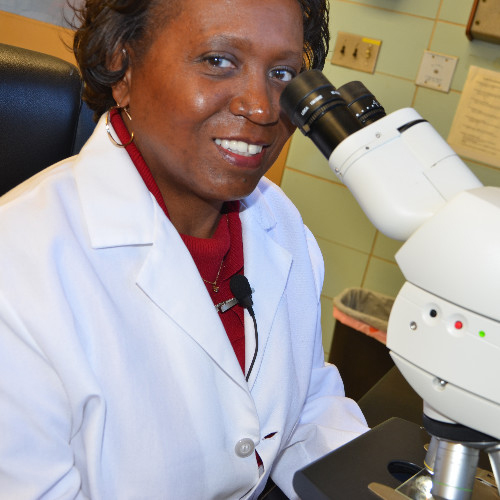Probiotic Solutions® is sponsoring a Wastewater Microbiology course with microbiologist & certified operator Dr. Toni Glymph-Martin in Arizona on April 11-12, 2023.

About the Instructor:
As a wastewater microbiologist and certified operator who has spent more than 40 years working, teaching, and researching in the field of wastewater microbiology, Dr. Glymph-Martin has gained considerable knowledge of wastewater treatment design and operation. She has also earned international recognition as an expert in her field, receiving numerous awards for her work. She is the author of Wastewater Microbiology: A Handbook for Operators, and A Wastewater Microbiology Laboratory Manual for Operators. More information about Toni and her work is available at https://www.wwmicrosolutions.com/.
Course Details:
- Course Dates:
April 11–12, 2023 (in-person, no virtual option)
- Class Times:
On-site Check-In on April 11, 7:30 am
Classes: 8:30 am–4:00 pm, both days
- Location:
Bio Huma Netics, Inc.
1331 Houston Ave.
Gilbert, AZ 85233 Map
- Fees and Registration:
- As this course involves hands-on use of microscopes, attendees are encouraged (but not required) to bring their own microscopes and wastewater samples. We will try our best to accommodate the use of microscopes if your system does not have one to bring.
- Registration Link: Eventbrite
- The course fee is $450 per attendee. Payment can be made by using credit/debit card or by PayPal. You’ll be asked the following questions:
- I will bring a microscope (encouraged but not required).
- I will bring a wastewater mixed-liquor sample on ice (encouraged but not required).
- I need CEUs/PDHs for attending this course.
- I am a member of AZ Water or Rural Water Association of Arizona.
Course Sponsors:
Probiotic Solutions®, AZ Water Association, and Rural Water Association of Arizona
Day One Agenda, April 11
8:30–9:30 Introduction to Microscopy
- Slide preparation
- Sampling
- Hands-on activity
9:30–11:00 Wastewater Microbiology
- The Role of Bacteria
- Growth Characteristics
- Parameters Affecting Their Growth: Oxygen, Sludge Age, Food: Microorganism (F:M) ratio, Other Parameters
- Hands-on activity
11:00–11:30 The Role of Protozoa and Metazoans
- Parameters Affecting Their Growth
- Identifying Protozoa and Metazoans
11:30–12:00 BHN Facility Tour
12:00–1:00 Lunch (On Your Own)
1:00–2:15 Process Control Using the Microscope
- Dispersed bacteria
- Protozoa & Metazoa: Relative Dominance
- Slime Bulking & Nutrient Deficiency
- Toxicity
2:15–4:00 Microorganisms Response to Unfavorable Conditions
- Bacteria—Zooglea
- Bacteria—Exocellular Lipopolysaccharide
- Protozoa & Metazoans—Shelled (Testate) species
Day Two Agenda, April 12
8:00–8:45 What are Filamentous Bacteria?
- Conditions That Favor Their Growth
8:45–9:00 Sampling and Staining
- Slide preparation
- Hands-on activity
9:00–10:00 Filamentous Bacteria Characteristics
- Cell size and Shape
- Sheath and Motility
- Attached Growth
- Sulfur Granules
- Hands-on activity
10:00–12:00 A Simple Approach to Identification and Control
- Bulking Filaments
- Foaming Filaments
- Staining
- Hands-on Activity
12:00–1:00 Lunch (On Your Own)
1:00–2:00 Filamentous Bacteria Counting
- Hands-on Activity
- Case Studies
2:00–4:00 Microbiological Monitoring of EBPR Systems
- PAOs, PHB, POLYp and GAOs
- PHB and Neisser Staining
- Quantifying PAOs and GAOs
- Hands-on Activity
Related Posts

BHN Article on Micronutrients in CropLife Magazine
CropLife Magazine currently features an article written by BHN staff, “Micronutrients Are the Key To Better Yields.” The authors provide an overview of micronutrients and their relationship to the soil, common deficiencies, application methods, and the importance of following the 4Rs of Nutrient Stewardship. The article concludes by discussing the importance of developing a Micronutrient Plan

BHN Welcomes Rich Lamar to the Humic Research Team
On May 1, 2019, Dr. Richard Lamar joined Bio Huma Netics, Inc. (BHN) as Senior Director of Humic Research. He brings a tremendous amount of skills, experience, and knowledge of humic substances to BHN. Dr. Lamar has a B.S. in Biology from the University of Miami, a M.S. in Forestry from Mississippi State University, and

The Water Break Podcast, Episode 26: Master Plans—A Vision for the Future
“Where We Bridge the Gap Between Water Plant Operators and Engineers” In The Water Break Podcast Episode 26, Heather Jennings, PE, discusses Water and Wastewater Facility Master Plans with guest Devan Shields, Project Engineer at Sunrise Engineering in Fillmore, Utah (phone 435.562.4086). Mr. Shields develops water and wastewater infrastructure solutions that include master plans, designs,

